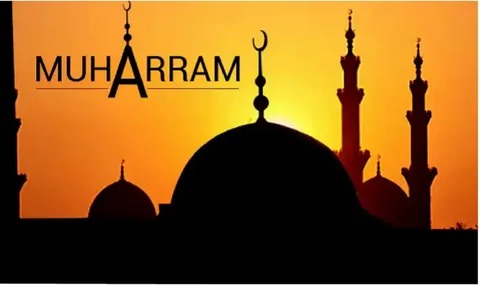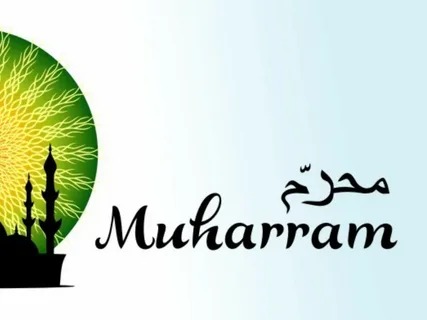In the Islamic calendar, Muharram month is considered one of the most sacred months, and it marks the beginning of the Islamic New Year. In this article on Arabian Tongue website we will explore the significance of the Muharram, its observances, historical importance, and how it is commemorated by Muslims worldwide.
Understanding Muharram

Muharram is the first month of the Islamic lunar calendar, and it holds great importance for Muslims. The word “Muharram” itself means “forbidden,” and it is named so because warfare and conflicts are prohibited during this month, signifying a time of peace and reflection.
Historical Significance
for a Muharram month, great historical significance is the following:
The Day of Ashura
The 10th day of Muharram, known as Ashura, holds immense significance. It is the day when Imam Hussain and his companions were martyred. For Sunni Muslims, Ashura is also a day of fasting to commemorate the rescue of Prophet Moses (Musa) and the Israelites from Pharaoh’s tyranny.
The Significance in the Quran
Muharram is referenced in the Quran, the holy book of Islam, highlighting its sacredness. Surah At-Tawbah (Chapter 9), Verse 36 mentions the division of the lunar year into twelve months, with Muharram is The first month of the Islamic new year. This underscores its importance in the Islamic faith.
Observances and Traditions
In this special month, Muslims celebrate as follows:
Mourning and Remembrance
During Muharram, many Muslims engage in mourning rituals to commemorate the martyrdom of Imam Hussain and his followers. They attend gatherings known as “Majalis, until the events of the principles Imam Hussain stood for.
Matam and Azadari
In some communities, participants express grief through “Matam,” a rhythmic act of self-flagellation, and “Azadari,” which involves mourning processions. These practices vary among different cultures and regions.
Acts of Charity
Muharram is also a time of giving and charity. Many Muslims make donations to the less fortunate and engage in acts of kindness as a way of seeking blessings in this sacred month.
The Message of Muharram

A Muharram month that serves as a message for Muslims, which is the following:
Upholding Justice and Truth
The legacy of Muharram is a reminder of the eternal struggle against injustice and oppression. Imam Hussain’s stand symbolizes the importance of upholding justice, even in the face of adversity.
Unity and Compassion
Muharram promotes unity and compassion among Muslims, It serves as a time to bridge differences and foster a sense of brotherhood.
Acts of Charity and Kindness
Muharram encourages acts of charity and kindness towards others. Muslims are encouraged to help the less fortunate and extend their generosity during this sacred month. This fosters a sense of community and strengthens the bonds of brotherhood.
Reflection and Self-Improvement
Muharram offers an opportunity for self-reflection and self-improvement. Muslims often use this time to introspect, identify areas of personal growth, and make resolutions for positive change.
The Role of Family and Community
Muharram is a time for family gatherings and strengthening community ties. It provides a platform for exchanging knowledge, sharing stories from Islamic history, and passing down traditions to the younger generation.
Muharram Across Cultures
Muharram is celebrated not only in the Arab world but also by Muslims in various parts of the globe. This sacred month’s diverse cultural expressions showcase Islam’s universality and its teachings.
Misconceptions and Clarifications
One of the wrong concepts about Muharram month:
Muharram and Violence
Addressing the misconception that Muharram is a month of violence or aggression is essential. On the contrary, it emphasizes peace, reflection, and non-violence.
Cultural Diversity
Muharram’s observances may vary among cultures and regions, but the core message remains the same across the Muslim world.
Muharram and Education
A Muharram month is an educational lesson for Muslims :
Learning about Islamic History
Muharram provides an excellent opportunity for both Muslims and non-Muslims to learn about the rich history and teachings of Islam.
Educational Initiatives during Muharram
Many organizations and educational institutions conduct seminars, workshops, and lectures to promote a deeper understanding of Muharram’s significance.
Recommend: Learn Quran with Tajweed Online Course.
The Future of Muharram Celebrations
Muharram With evolution, the forms of celebration change for a
Evolving Traditions
As societies change, Muharram celebrations may also evolve, incorporating new practices while maintaining the core values and teachings.
Globalization’s Impact
Globalization has influenced how Muharram is observed worldwide, bringing people of diverse backgrounds together to commemorate this sacred month.
The Four Sacred Months
These sacred months in Islam hold profound importance in the Islamic calendar, and understanding their significance provides valuable insights into the faith’s principles and values, including:
1. Muharram
The first sacred month of the Islamic calendar is Muharram. It marks the beginning of the Islamic year and holds special historical and religious importance. The 10th day of Muharram, known as Ashura, is observed solemnly by Muslims worldwide.
2. Rajab
Rajab is the seventh month in the Islamic calendar and holds spiritual significance, though its specific sanctity has been debated among Islamic scholars. Nevertheless, it is considered one of the sacred months.
3. Dhu al-Qi’dah
Dhu al-Qi’dah is the eleventh month of the Islamic calendar. It is recognized as sacred and is significant because it comes just before the month of Hajj pilgrimage.
4 . Dhu al-Hijjah
Dhu al-Hijjah is the twelfth and final month of the Islamic calendar. It is the month of Hajj pilgrimage, one of the Five Pillars of Islam. The first ten days of this month are particularly revered.
FAQs
Why is Muharram considered a sacred month?
Muharram is the first month of the Islamic calendar and holds significance for its association with peace and reflection.
What happened on the Day of Ashura?
The Day of Ashura marks the martyrdom of Imam Hussain and his companions in the Battle of Karbala, a pivotal event in Islamic history.
Is self-flagellation a necessary part of Muharram observance?
Self-flagellation is a cultural practice and not a mandatory part of Muharram observance. It varies among different communities.
How can Muslims globally commemorate Muharram?
Muslims worldwide commemorate Muharram through gatherings, charity, fasting, and reflecting on the message of Imam Hussain.
What lessons can be learned from the events of Karbala?
The events of Karbala teach us about standing up for justice, unity, and the importance of resisting oppression even in difficult circumstances.
Conclusion
Muharram stands as a sacred month of reflection, unity, and remembrance for Muslims globally. It commemorates the martyrdom of Imam Hussain and his companions, symbolizing the eternal struggle for justice, truth, and compassion. Observing Muharram fosters a sense of community, understanding, and empathy, bringing Muslims closer together.


